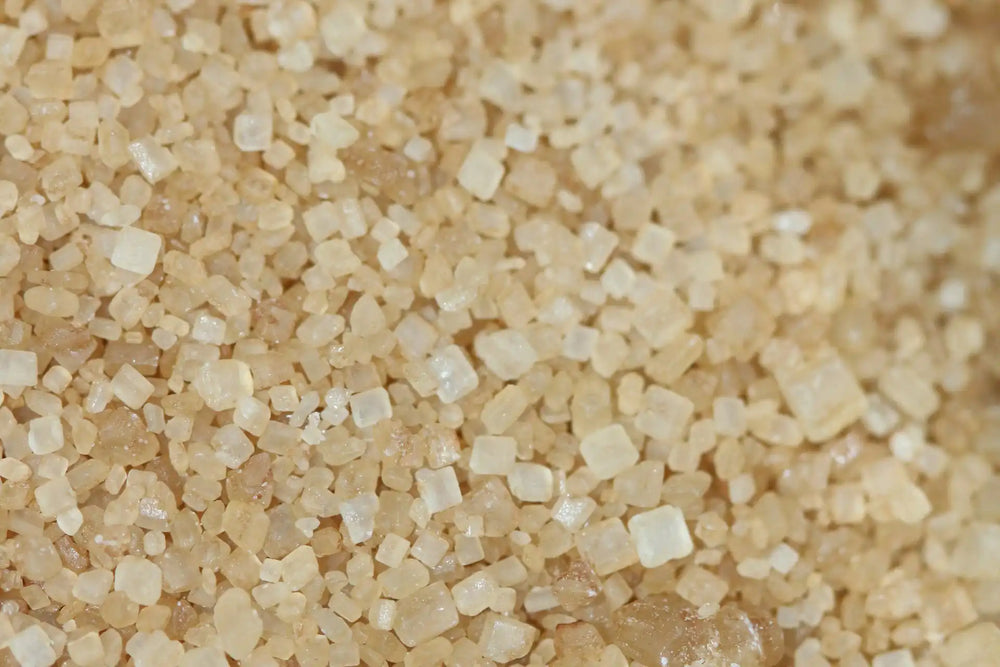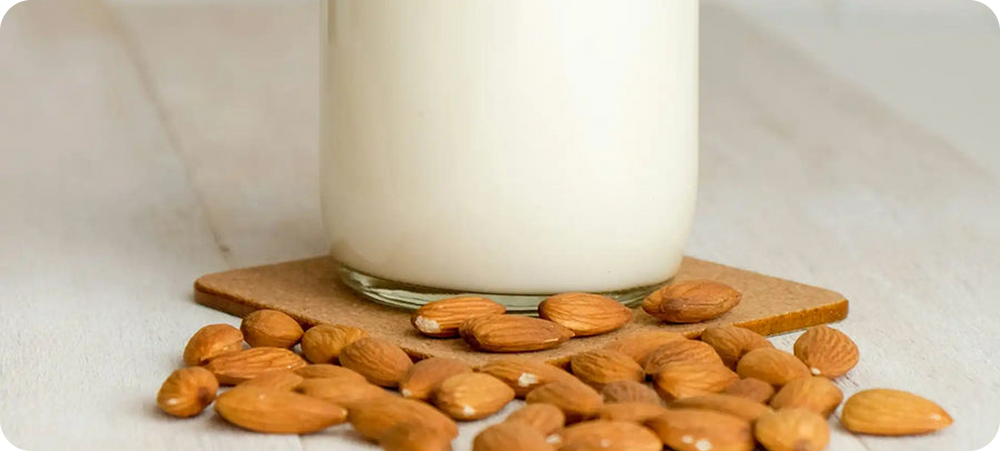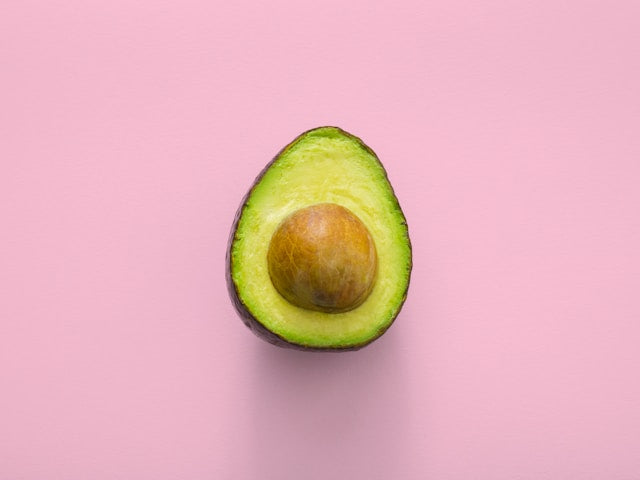
Have you ever wondered if there's a healthier alternative to sugar in your baking? You're not alone. Many are turning to natural sweeteners, and dates are a popular choice. They're sweet and nutritious, making them an excellent sugar substitute.
But can you replace sugar with dates when baking? Is it as simple as swapping one for the other, or do you need to adjust your recipes? Let's explore this intriguing topic. You might discover a new favorite ingredient for your baked goods.
Remember, it's all about understanding the science of baking. So, let's prepare to improve our baking skills with this sweet, healthy alternative.
Benefits of Using Dates as a Sugar Substitute
Sugar's sweet grip is rugged to shake off, but you'll be pleasantly surprised to learn that dates can be a significantly healthier alternative in your baking endeavors. This substitution reduces your intake of refined sugars and packs your baked goodies with a host of nutritional benefits.
Dates are abundant in crucial nutrients and fiber. If you choose to make your desserts with dates, your body sees a surge in potassium, magnesium, and vitamin B6 intake. Plus, the high-fiber content in dates promotes better digestion and aids in controlling hunger, qualities that sugar can't offer.
In terms of flavor, dates impart a unique richness to various baked goods like cookies, brownies, and cakes. Replacing sugar with dates can give your recipes a novel twist and enhance the taste profile of your sweet dishes.
Because of their natural sweetness, you'll require less quantity of dates than sugar, decreasing overall caloric intake. Inversely proportional is the case with dates' moisture content, which is higher. Hence, your well-aired cakes enthrall with an amplified succulence.
Let's look at the difference between refined sugar and dates when it comes to nutritional facts:
|
Nutrient |
Refined Sugar(Per 100g) |
Dates (Per 100g)
|
|---|---|---|
|
Calories |
387kcal |
277kcal |
|
Total Fat |
0g |
0.15g |
|
Potassium |
2mg |
696mg |
|
Dietary Fiber |
0g |
6.7g |
|
Sugar |
100g |
66g |
In your progressive baking journey, trying healthier alternatives may prove beneficial. Swapping sugar for dates could be one such lucrative switch.
Nutritional Value of Dates in Baking
Replacing sugar with dates in baking changes the flavor dynamic and the nutritional value of your baked goodies. Dates are a powerhouse of essential nutrients that boost the nutritional value of regular cakes, cookies, and breads.
Unlike refined sugar, which offers dates that contain considerable amounts of potassium, magnesium, vitamin B6, and dietary fiber. This nutrient-rich profile plays a multifaceted role:
- Potassium contributes to heart and kidney health. It helps to balance your body's fluids and promotes nerve transmission and muscle contraction.
- Adding magnesium ensures proper bone health, aids energy production, and helps control your blood sugar levels.
- Vitamin B6 is an essential contributor to brain development. It aids in mood regulation and sleep pattern normalization.
- The dietary fiber not only aids digestion but also keeps your hunger pangs in check, which can be an added advantage for weight-watchers.
Besides, dates lend natural sweetness to your baking delights, minimizing the need for artificial or processed sweeteners. This switch not only brings a unique richness and flavor to your treats but also contributes to their nutritional density. So, using dates as a sugar substitute catapults your homemade bakery items into healthy food without compromising taste!
Switch up your baking ritual, experiment with dates, and let these sweet, nutrient-dense fruits work their magic in your pantry.
How to Replace Sugar with Dates in Baking
You might be thinking, "Great! Now that I know the health benefits of using dates as a sugar substitute, how do I do it?"
Fear not; these next few steps elaborate on how to swap sugar with dates in your favorite recipes.
Firstly, you'll need date paste. It's simple to make your own. Blend 1 cup of pitted dates with 1/2 cup of hot water to get a smooth paste. You can use this as a one-for-one substitute for white sugar.
Here's a spearhead trick:
- If your recipe calls for 1 cup of sugar, use 1 cup of date paste.
When whipping this up, always remember that dates are naturally lovely. Even though you're replacing sugar teaspoon for teaspoon or cup for cup, some recipes might need to adjust the overall sweetness.
Dates work exceptionally well as a sugar substitute in recipes requiring a dark or moist texture, like cookies and brownies.
Finally, remember that date paste does add a hint of its unique flavor. So, while you're increasing the nutritional value of your baked goods, your dishes will have a delightfully exciting taste profile. Play around with this new ingredient! Embrace the fun of baking by treating the inclusion of dates as a way to experiment and broaden your culinary creativity.
Adjusting Recipes When Using Dates
When replacing sugar with dates in your baking, you'll need to tweak your recipes a bit. Remember, using date paste doesn't just change the flavor; it also affects the recipe's wet-to-dry ingredient ratio, so you need to keep a watchful eye on the moisture content.
First, it's crucial to understand that date paste is denser and moister than granulated sugar. This implies that less liquid is needed when incorporating it into recipes. For example, if you're baking cookies and the recipe calls for a cup of sugar and half a cup of milk, you might only need a quarter of a cup of milk when using date paste.
Besides, pay attention to baking temperatures. Dates are a natural sugar source, so they tend to caramelize at lower temperatures, creating a risk of over-browning or burning. To prevent this, it's prudent to reduce your baking temperature by about 25%.
Also, consider that while dates pack a sweet punch, their sweetness is often milder compared to the sharp sweetness of sugar. This might call for adjusting additional flavor components like cinnamon, nutmeg, or vanilla to ensure a well-balanced flavor profile.
Remember, practice makes perfect. With each baking experiment using dates, you'll develop an innate sense for the necessary adjustments to achieve ideal results every time.
Tips and Tricks for Baking with Dates
Switching from sugar to dates in your baking adventures can be manageable. Armed with a few insider tips and tricks, you'll master baking with dates in no time.
Decoding the Perfect Ratio change: Dates lend more density and moisture to your recipes. So, it's no surprise that your wet-to-dry ingredient ratio would need tweaking. Take a systematic approach. Start with reducing the liquid in your recipes by a quarter and take it from there.
Experimentation is the key here, as every recipe varies. This exercise is as much about honing your perspective on taste and texture as it is about getting the right mix. Your cakes might be a tad denser, your cookies a smidgen chewier. But remember, you're entering a new area of flavors.
Toast Your Dates: Unleash the potential of dates by toasting them lightly before grinding. It intensifies their natural sweetness, adding depth to your baked goods.
Temperature Loyalty Is Overrated: Be mindful that dates tend to caramelize at lower temperatures. Don't hesitate to lower your oven temperature to avoid excessive browning. It might take a few trials, but in time, you will ace nailing that warm, rich caramel finish.
Lid on the Sweetness: Unlike sugar, dates offer a more subtle sweetness. Because of this, you may need to adjust other flavors in your recipe to maintain harmony.
Patience and practice are your best allies when finding the perfect balance in this culinary adventure.
Conclusion
In conclusion, you can replace sugar with dates when baking. With patience, practice, and a keen sense of adventure, you can master baking with dates. Adjust your wet-to-dry ingredient ratio, reduce your liquids by a quarter, and don't be shy about experimenting with different recipes. Toasting dates before grinding can enhance sweetness, and lowering baking temperatures can prevent unwanted caramelization. It's all about finding that perfect balance to suit your palate. Happy baking!
Can dates be substituted for sugar in baking?
Yes. Dates can be used as a substitute for sugar in baking. They offer a natural, healthier sweetness to baked goods. However, the final product's texture and taste might vary.
How should I adjust recipes when baking with dates?
When using dates instead of sugar, reduce the liquid ingredients in your recipes by a quarter initially. As dates are denser than sugar, they can make baked goods heavy if you don't adjust the liquid quantities accordingly.
Why should I toast dates before grinding them?
Toasting dates before grinding enhances their sweetness, adding an extra layer of flavor to your baked treats. This allows you to use less of them while achieving the desired level of sweetness.
Do I need to adjust baking temperatures when using dates?
Yes, it is advisable to lower the baking temperature when using dates to prevent them from caramelizing too quickly, which can cause your baked goods to appear overly dark or burnt.
How can I balance the sweetness of dates in a recipe?
Try adjusting other flavors in your recipes to create a balance. For instance, adding a little extra vanilla extract or cinnamon can help balance out the sweetness of dates.
Is experimenting important when baking with dates?
Absolutely! Baking with dates is an art that requires patience and practice. Experiment with different recipes to understand how dates' sweetness interacts with other ingredients, and continue adjusting until you find the perfect balance for your palate.
FAQ
The vegan milks highlighted in this article are coconut, oat, soy, and almond milk.
Related posts
-

What Is The Difference Between...
When it comes to sweetening your morning coffee or baking your favorite dessert, you've likely re...
-

What Are The Best Vegan...
You're a baking enthusiast, but you recently turned vegan. Now you're wondering how to replace th...
-

Top Vegan Butter Substitutes for...
Have you ever considered baking that delicious cake but run out of butter? Or are you trying to s...



